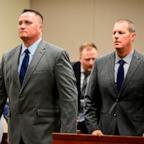Are Business Air Fares Unfair?
April 26, 2002 — -- The first streaks of morning light were evident when Paige Bevington left her midtown Manhattan apartment at 5:45 a.m. Wednesday for New York's LaGuardia Airport and a flight to Chicago.
The trip began like almost every other in the past five years for the young auditor at Interpublic, the giant New York advertising and marketing services company.
But that was almost the only thing the same about this business trip. Instead of flying roundtrip to Chicago, Bevington is flying from New York to Chicago, then to Detroit and back to New York. Interpublic used a mix of advance purchase tickets, a low cost airline and corporate discounts, and less popular airports like Chicago Midway and Detroit Metro.
Her airfare cost $542.44. Interpublic said it saved $1,600.
Bevington's employer is one of a growing number of companies in a near revolt against the high, unrestricted business fares. Since the recession and Sept. 11, they have been doing everything they can to lower the cost of travel and avoid those high business fares.
"Interpublic does approximately 100,000 tickets a year in North America," said Kathleen Kaden, the company's travel manager. "If each traveler saves $100, that's $10 million."
A survey by the Business Travel Coalition, an association of companies that for several years have fought high business fares, says 56 percent of the nation's biggest companies so far this year have turned to restricted, discount tickets and low cost airlines. That's double what it was three years ago.
Some companies are now keeping their employees at home, using teleconferences or Internet meetings. Others are driving or taking the train.
The nation's eight biggest airlines reported staggering losses in the first quarter totaling $2.5 billion. All cited the slow return of the business traveler for much of their predicament.
Says Delta Air Line's Chairman Leo Mullin: "We need to have the business traveler come back and we need the business traveler, some portion of them, to pay the full fare. And if in fact that does not occur, or if it remains substantially below past levels, we have a problem moving ahead."




